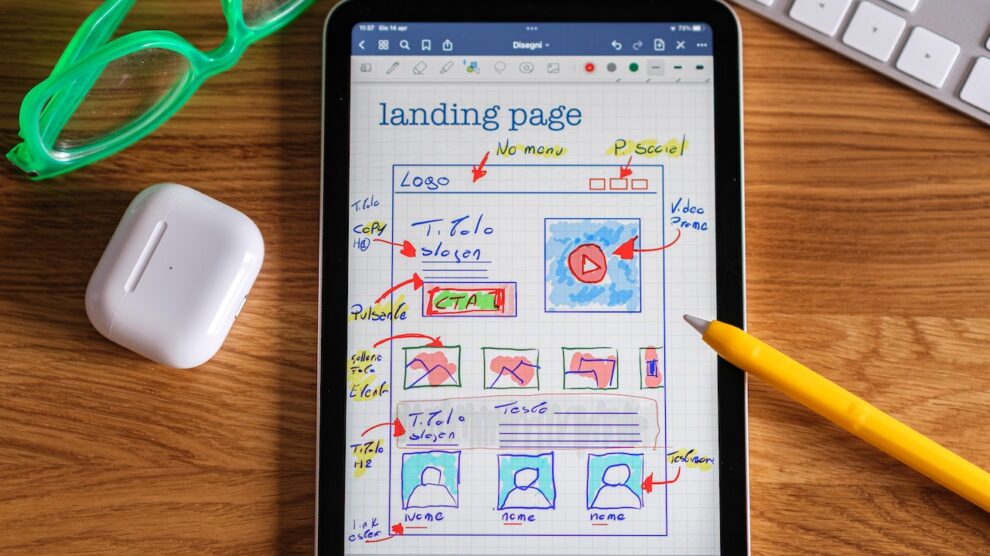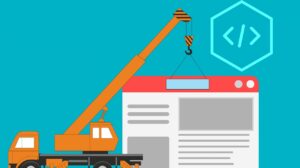In today’s digital age, one bitterly competitive, having a well-designed website is crucial for the success of any business or organization. A professionally designed website can attract visitors, engage them, and convert them into customers.
However, the catch is finding the right website designer who understands your vision and can bring it to life. That’s a tough task. Why else would there be a huge surge in searches for quality web designers for hire?
We have compiled a list of 10 effective tips to help you hire dedicated web designers with superb skills. Whether you’re starting from scratch or redesigning an existing website, these tips will guide you in making an informed decision.
1. Define Your Goals and Budget
Before you go ahead and hire a website designer, it is important to prepare a list of goals that you want him to accomplish and also, assign a realistic budget. Determining what you want to achieve with your website will help you find a designer who specializes in the specific features and functionalities that you require.
For example, if you want to generate leads, you may need a designer who has experience in creating effective lead capture forms or landing pages. On the other hand, if your goal is to sell products online, it is better that you go for a designer who has expertise in eCommerce design.
Setting a budget is equally important as it will ensure that you focus on designers who offer services within your price range. This is one major reason why firms hire creative web designers from India; they are some of the greats in global business.
2. Look for a Diverse Portfolio
A reputable website designer should (must, to be precise) have a diverse portfolio that showcases their expertise and versatility. Take the time to review their previous work and evaluate if their design style aligns with your brand and aesthetic preferences.
A designer with a diverse portfolio indicates that they can adapt to different industries and target audiences. It also demonstrates their ability to bring fresh ideas and creativity to your project.
Pay attention to the range of websites they have designed and assess if they can handle various design requirements such as responsive design (mobile-friendly), eCommerce websites, or content management systems (CMS) like WordPress.
3. Consider Experience and Expertise
Experience is one of the biggest assets to be considered when it comes to choosing a website designer. Look for designers who have been in the industry for a considerable amount of time and have a track record of successful projects. An experienced designer will have a deep understanding of creating the perfect design that is in sync with the desired user experience and the latest trends.
Additionally, consider their expertise in specific areas of your line of business and your unique goals. For instance, if you want to build an eCommerce website that runs seamlessly across different devices and screen sizes, all you need to do to garner best results is hire responsive web designers.
4. Seek Recommendations and Read Reviews
Word-of-mouth recommendations and online reviews can provide superb insights into the reputation and reliability of website designers. Reach out to your professional network, colleagues, or friends who have had positive experiences with website designers.
Their firsthand experiences can help you narrow down your options and find designers who have a track record of delivering quality work and excellent customer service. Additionally, check online review platforms and social media channels to gather feedback from previous clients.
5. Communication and Collaboration
Effective communication and collaboration are the two pillars on which you lay the foundation of a successful website design. Therefore, you should look for a designer who is responsive, attentive, and takes time to understand your specific needs.
During the interview, assess if your chosen designer is actively listening to your ideas. You can also ask relevant questions, and provide thoughtful feedback. A good designer will always be open to your suggestions and willing to incorporate your feedback. He will also involve you in the decision-making process and keep you updated on the progress of the project.
6. Try and Understand the Basic Design Process
Before finalizing a website designer, it’s important to understand their design process. Inquire about their workflow, from the initial consultation and wire-framing to the design phase and website launch.
A transparent and well-defined process ensures that you have a clear understanding of what to expect at each stage and minimizes potential misunderstandings or delays.
Ask the designer about their approach to gathering requirements, creating design mock-ups or wire-frames, and obtaining client feedback. Multiple independent surveys and think-tank analyses have shown that when you hire web designers from India, this collaboration experience becomes a lot smoother. India is, after all, the talent capital of the world.
7. Leaf through Testimonials and Case Studies
Testimonials and case studies offer further evidence of a website designer’s capabilities and client satisfaction. Request references from the designer and reach out to their previous clients to gather firsthand experiences.
Testimonials provide valuable insights into the designer’s professionalism, timeliness, and ability to deliver results. They can help you gauge the designer’s expertise, communication skills, and overall client satisfaction.
Case studies are another powerful tool to evaluate a designer’s problem-solving skills and the impact of their design solutions. They showcase the designer’s ability to understand clients’ challenges and provide effective design solutions to address them.
8. Compatibility and Cultural Fit – Underrated but Crucial
Many web designers for hire will not understand your brand and the image you are trying to cultivate. During the selection process, assess if the designer’s values, communication style, and working approach resonate with your own. A compatible designer will have a better understanding of your brand identity, target audience, and industry-specific requirements.
Consider their ability to capture your brand’s personality and translate it into a visually appealing website. Look for examples in their portfolio where they have successfully incorporated a brand’s unique identity and storytelling.
9. Support and Maintenance
A well-designed website needs both support and maintenance in real time to ensure optimal performance. Jot down notes and questions to ask about the post-launch services offered by the designer, such as bug fixes, security updates, and content updates.
A reliable designer should provide options for website maintenance and be available for future enhancements or upgrades as your business grows. This is where you can get ahead of the competition and hire web designer India.
Discuss their approach to handling technical issues, how quickly they respond to support requests, and the availability of service-level agreements (SLAs) if needed.
Conclusion
Finding the best website designer for your project is a significant decision that can impact the success of your online presence. By sticking with these tips, you’ll be equipped with the knowledge and confidence to identify a website designer locally- or go ahead with web designers for hire.
Learn to trust your instincts when selecting a website designer. Vet thoroughly, think it through, and everything will fall into place!





